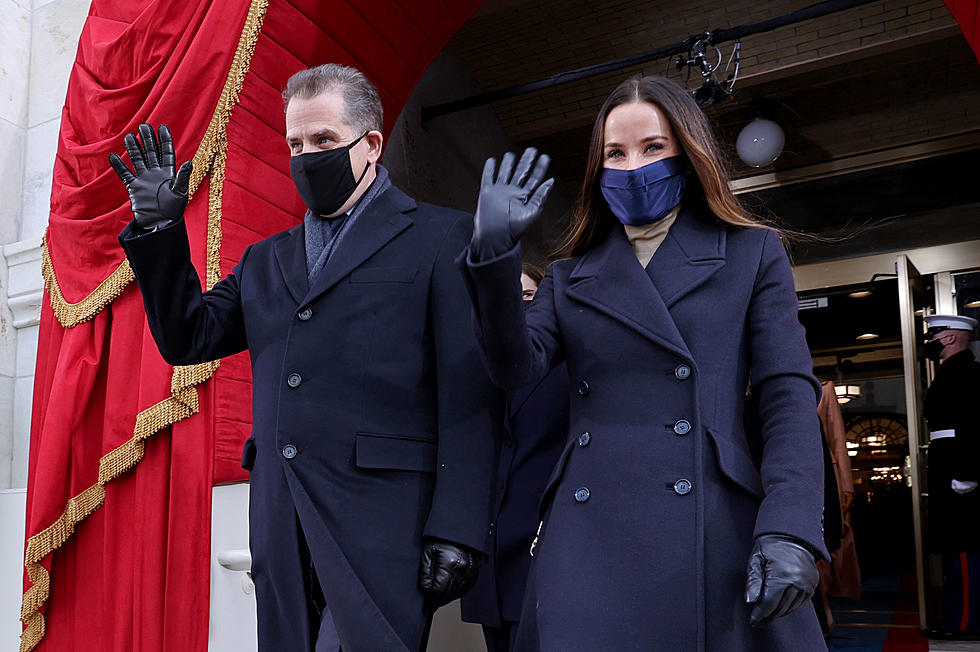
Dems pick Milwaukee for 2020 convention over Miami, Houston
"This choice is a statement of our values," Perez said in a statement. "The Democratic Party is the party of working people, and Milwaukee is a city of working people."
The convention is scheduled for July 13-16, 2020.
It will be the first time in over a century that Democrats will be in a Midwest city other than Chicago to nominate their presidential candidate. Instead, the political spotlight will shine for a week on a metro area of about 1.6 million people. Once dubbed as "The Machine Shop of the World," the famously working-class city also is known for its long love affair with beer and as the birthplace of Harley-Davidson motorcycles.
Republicans are set to gather in Charlotte, the largest city in battleground North Carolina, on Aug. 24-27, 2020.
Democrats see plenty of symbolism in Milwaukee after a bitter 2016 election defined by Hillary Clinton being nearly swept in what her campaign aides had confidently called a "Blue Wall" across the upper Midwest and Great Lakes region. That band of states twice sided with President Barack Obama, but Clinton held only Minnesota, ceding Wisconsin, Michigan, Ohio and Pennsylvania — a combined 64 of the necessary 270 electoral votes — as white working-class voters flocked to Trump.
The president won Wisconsin and its 10 electoral votes by about 23,000 votes out of almost 3 million cast, the first time since 1984 that Republicans claimed the state in a presidential election. Afterward, Clinton took withering criticism for not once visiting Wisconsin as a general election candidate.
Since then, Wisconsin voters have re-elected Democratic Sen. Tammy Baldwin and ousted Republican Gov. Scott Walker in favor of Democrat Tony Evers and the state's first black lieutenant governor, Mandela Barnes.
"There is no better place to showcase the Democratic Party's vision for the future than in Wisconsin," Baldwin said in a statement. "The Midwest is a critical battleground and will be key to securing a better future for America."
Wisconsin Democrats pointed to those midterm election results as they lobbied Perez and DNC officials, and presidential candidates already are paying attention. Minnesota Sen. Amy Klobuchar came to Wisconsin in one of her first trips as a declared candidate.
"A lot people feel that we lost (in 2016) because this area had been ignored — whether it's from a political standpoint or whether it's from a governing standpoint," said Barnes, one of the members of the convention bid committee. Holding the convention in Milwaukee, Barnes added, says "we are ready to reinvest in the Midwest, that the Midwest matters again."
In a political twist, Milwaukee officials have credited the Republican Walker for supporting the convention bid. Democratic Party proceedings will play out in the new 17,500-seat arena that Walker helped build for the NBA's Milwaukee Bucks by securing public financing from state lawmakers. Walker later lobbied GOP-leaning business leaders and donors to support Milwaukee's effort to land the DNC.
"When it comes to a big convention like this, it's not red, it's not blue, it's green." Walker told The Associated Press. "It's the money that will come into the state."
While Democrats expressed enthusiasm, Walker said hosting the convention may actually result in previously complacent Wisconsin Republicans paying more attention and getting motivated to vote for Trump.
"I think you'd be hard-pressed to find anyone who leans Democrat who wasn't already motivated in the city or the state against the president," Walker said.
Democratic officials in Washington said picking a host city is as much about logistics as anything else, even as they acknowledge political optics.
On logistics, Milwaukee may have pulled somewhat of an upset, given its small footprint compared to Houston and Miami, cities long accustomed to hosting major events. Houston put on the Super Bowl as recently as February 2017.
Milwaukee organizers pitched their city — the Democratic stronghold of Wisconsin — as resurgent. Home to some of the country's biggest brewers, including Pabst, Schlitz, Miller and Blatz, the metro area has a redeveloped downtown, a hotel capacity exceeding 17,000 rooms and a new downtown streetcar line that opened in November.
Still, the city had to prove it has the overall capacity for tens of thousands of delegates, party activists, donors and media.
DNC officials have said that the question wasn't about hotel rooms, but whether Milwaukee has requisite venues for other convention staples, from daily sit-down breakfast meetings for 57 state and territorial delegations to evening events put on by state parties, corporations, lobbyists and donors. Even as Milwaukee officials insisted they have the venues, some deep-pocketed Democrats in nearby Chicago — a 90-minute drive — stepped in to note their proximity.
Houston and Miami, meanwhile, faced their own challenges.
Miami has an impressive concentration of luxury hotels, but many are in Miami Beach across bridges from downtown. That raised the prospect of delegates spending hours in traffic. The city's arena also is not as new as in Milwaukee.
Houston had few if any logistical barriers. But according to party officials with knowledge of the process, the city's organizing committee struggled to come up with the necessary financing without resorting to oil and gas money. That industry is the city's bread and butter, but it's become anathema in Democratic politics because of its part in climate change. The city's mayor also is embroiled in a labor dispute with Houston firefighters.
Also, though Houston and Miami are Democratic anchors in their states, Texas and Florida have no Democratic governor or senator between them.
Barrow reported from Atlanta. Bauer reported from Madison, Wisconsin.
More From News Talk 96.5 KPEL









